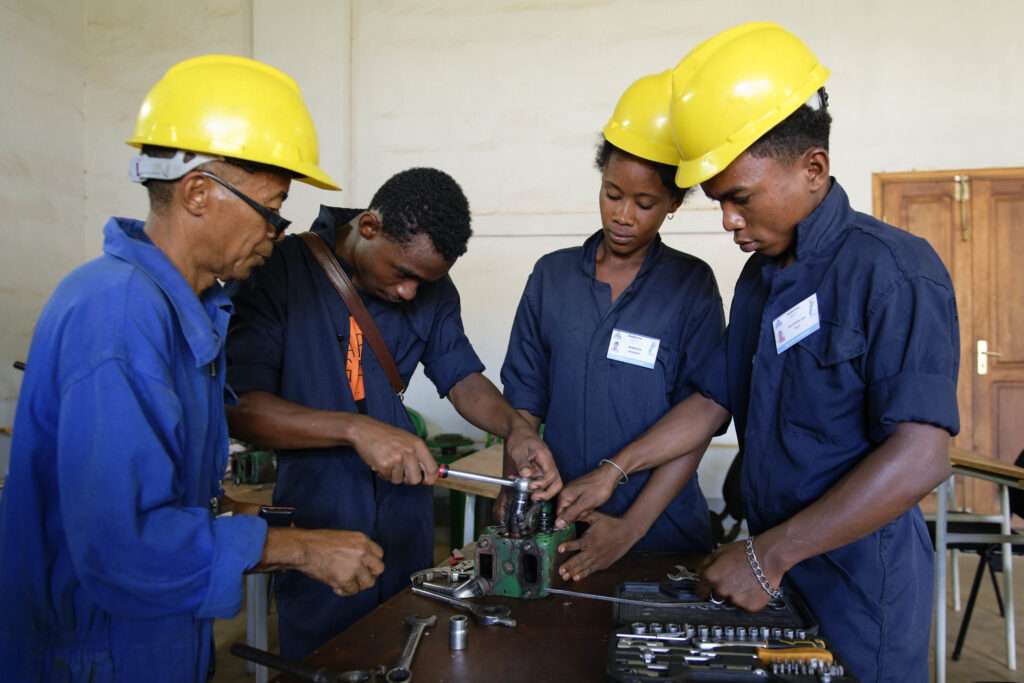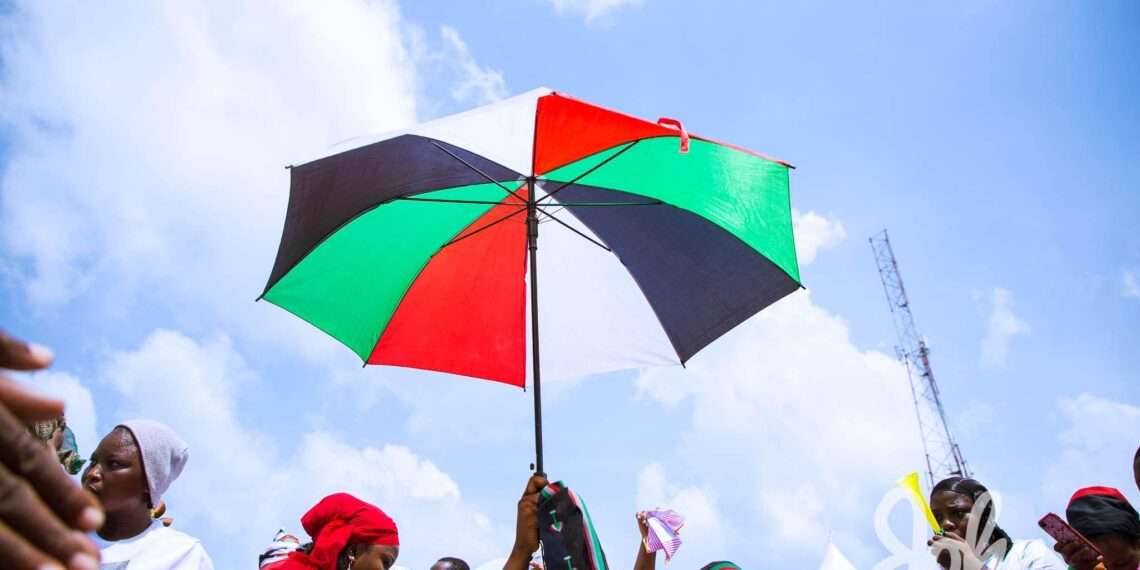The National Democratic Congress (NDC) has reinforced its commitment to youth empowerment as the government nears its first 120 days in office.
Leading this renewed push is Julian Mawuse Cobbina, Chairman of the NDC Youth Manifesto Committee, who outlined the government’s vision to rebuild trust in state-sponsored youth programs and equip young people with the skills needed for a thriving, inclusive industrial economy.
Commenting on the government’s newly launched Adwumawura initiative, Cobbina was forthright—promising that the NDC government would eliminate the culture of partisan favoritism that, in his view, has long undermined the credibility of state-backed business support schemes.
“It’s become like a partisan clientele, where people think that because they belong to political parties, they might be given cushions by the government. I think we must stop that, because when we do that, we just create a bowl that we put money in, we dump money in there, and we don’t have any effect.”
Julian Mawuse Cobbina

According to him, the NDC government plans to introduce what he described as a “credible regime, a credible process” to ensure that support reaches those who genuinely merit it.
The goal is to empower the right entrepreneurs—those capable of creating meaningful change within their communities.
“The hands of government must reach wherever you are in the country,” Cobbina noted, adding that support should also include financial instruments, advisory services, and help with product placement and marketing.
He described Adwumawura as “very ambitious,” and possibly the first of its kind on the African continent.
However, Cobbina was quick to clarify that it’s only one piece of a larger youth-focused policy framework, which also includes a revamped National Apprenticeship Programme and a long-promised 24-hour economy.
Youth Empowerment Through Skills And Support
Taking aim at the longstanding gap between industrialization rhetoric and results, Cobbina was critical of past efforts. “Government upon government, what we have done is that we’re talking about building an industrialized nation, but it’s been talk.”
He argued that a thriving industrial economy cannot exist unless young people—those expected to form the foundation of the workforce—are given the skills to thrive.

He referenced development models from Asia and Oceania, noting how countries like India and Japan made targeted investments in youth development.
“India today is beating Japan with its GDP from 1992 to today because India is focused on helping to retool and scale up its development programme for its young people.”
Julian Mawuse Cobbina
In that same spirit, Cobbina explained, the NDC is designing a programme for 2025 that will directly match skilled master craftsmen and instructors with aspiring apprentices.
He stressed the importance of recognizing and certifying skills already held by many in the informal sector—artisans like mechanics and hairdressers—who have no formal documentation of their trade.
“We certify you, we’re able to measure your progress and be able to align you with those who actually need the services that we have taught you.”
Julian Mawuse Cobbina
This, he believes, will aid not only in job creation but in transitioning informal workers into Ghana’s formal economy—expanding access to social protections and financial support.
Another major highlight of the NDC’s youth vision is its commitment to a 24-hour economy. Cobbina dismissed concerns that the policy had been shelved. “Absolutely not,” he said.
He reiterated that the government would soon submit a legislative framework to Parliament to activate this economic shift. “We are saying that we have 24 hours in the economy. We are going to make sure that people are able to work across time.”
According to him, the policy would incentivize businesses to operate in shifts, thereby expanding productivity and job opportunities. Government, he said, will ensure supporting reforms in energy, labor laws, and logistics to make the model viable.
Government Not Reneging On Education Promise
On the issue of the NDC’s “No Fee Stress” promise—which guarantees free admission for first-year students—Cobbina dismissed claims of policy abandonment.
He clarified that the scheme remains intact and is designed to ease the financial burden on first-year students, many of whom travel long distances to enroll in tertiary institutions.

“NDC won the election in December. Mind you, some students were in school in September before the election…so, the government…is saying your money can be used to pay for the second year.”
Julian Mawuse Cobbina
He explained that for returning students and those who have already paid fees, arrangements will be made to refund or credit those payments toward future academic years. “You can actually apply on the supported website’s portal, and you are guaranteed a refund.”
In the coming weeks, Cobbina assured, the Minister of Education would clarify further details as the full manifesto is rolled out.
But the NDC’s broad goal is clear: rebuild trust in public initiatives, equip young people with the tools to succeed, and deliver a modern, inclusive economy that leaves no one behind.



















